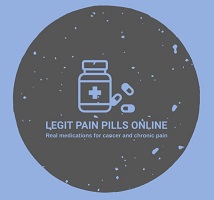Pain Relief Drugs: Understanding Your Options for Effective Pain Management
Discover effective chronic pain management solutions at Legit Pain Pills Online. Your trusted source for high-quality medicine for cancer, chronic pain, and more. When it comes to managing chronic pain, understanding the different types of pain relief drugs available is crucial. Pain relief medications can be broadly categorized into over-the-counter (OTC) and prescription drugs. OTC pain relievers, such as acetaminophen and nonsteroidal anti-inflammatory drugs (NSAIDs) like ibuprofen and aspirin, are commonly used for mild to moderate pain. These medications are easily accessible and can be effective for short-term pain relief.

For more severe or persistent pain, prescription pain relief drugs may be necessary. These include opioids, such as oxycodone, hydrocodone, and morphine, which are powerful painkillers that work by binding to opioid receptors in the brain and spinal cord. While opioids can be highly effective, they also carry a risk of dependence and addiction, so they must be used under careful medical supervision.
In addition to opioids, other prescription pain relief drugs include muscle relaxants, which help alleviate muscle spasms and tension, and anticonvulsants, which are used to treat nerve pain. Antidepressants, particularly tricyclic antidepressants and serotonin-norepinephrine reuptake inhibitors (SNRIs), can also be prescribed for chronic pain management, as they can help modulate pain signals in the nervous system.
It’s important to consult with a healthcare provider to determine the most appropriate pain relief drugs for your specific condition. They can help you weigh the benefits and risks of each medication and develop a treatment plan tailored to your needs.
Chronic Pain Management: A Comprehensive Approach to Long-Term Relief
Effective chronic pain management requires a comprehensive approach that goes beyond just medication. It involves a combination of medical treatments, lifestyle changes, and alternative therapies to address the physical, emotional, and psychological aspects of chronic pain.
One key component of chronic pain management is physical therapy. Physical therapists work with patients to develop personalized exercise programs that can help improve strength, flexibility, and mobility, ultimately reducing pain and enhancing quality of life. Regular physical activity, such as walking, swimming, or yoga, can also play a significant role in managing chronic pain.
Another important aspect of chronic pain management is psychological support. Chronic pain can take a toll on mental health, leading to conditions such as depression and anxiety. Cognitive-behavioral therapy (CBT) and other forms of counseling can help individuals develop coping strategies, manage stress, and improve their overall well-being.
Alternative therapies, such as acupuncture, massage therapy, and chiropractic care, can also be beneficial for chronic pain management. These therapies can help alleviate pain, reduce inflammation, and promote relaxation. Additionally, some individuals find relief through the use of complementary approaches, such as mindfulness meditation, biofeedback, and herbal supplements.
It’s important to work with a healthcare provider to develop a personalized pain management plan that addresses your specific needs and goals. This may involve a combination of medications, therapies, and lifestyle changes to achieve the best possible outcomes.
Chronic Pain Relief: Exploring Effective Solutions for Lasting Comfort
Finding effective solutions for chronic pain relief can be a journey, as different approaches work for different individuals. It’s important to explore various options and find what works best for you. In addition to the pain relief drugs and therapies mentioned earlier, there are several other strategies that can help manage chronic pain.
One such strategy is the use of heat and cold therapy. Applying heat, such as with a heating pad or warm bath, can help relax muscles and improve blood flow, providing relief from pain and stiffness. Cold therapy, on the other hand, can help reduce inflammation and numb pain. Alternating between heat and cold therapy can be particularly effective for certain types of pain.

Another approach to chronic pain relief is the use of assistive devices. These can include braces, splints, or orthotic inserts that provide support and reduce strain on affected areas. For individuals with arthritis or joint pain, using ergonomic tools and adaptive equipment can make daily activities more manageable and less painful.
Maintaining a healthy diet and staying hydrated are also important for chronic pain relief. Certain foods, such as those rich in omega-3 fatty acids, antioxidants, and anti-inflammatory properties, can help reduce inflammation and promote healing. Staying hydrated helps keep joints lubricated and can prevent muscle cramps and stiffness.
Lastly, it’s important to prioritize self-care and stress management. Chronic pain can be exacerbated by stress, so finding ways to relax and unwind is crucial. This can include activities such as reading, listening to music, spending time in nature, or practicing relaxation techniques like deep breathing and progressive muscle relaxation.
Buy Pain Pills: Ensuring Safety and Legitimacy for Your Health
When it comes to buying pain pills, it’s essential to ensure that you are obtaining them from a legitimate and safe source. With the rise of online pharmacies, it has become easier to purchase medications from the comfort of your home. However, it’s important to exercise caution and do your research to avoid counterfeit or unsafe products.
One of the first steps in ensuring the legitimacy of an online pharmacy is to check for proper accreditation. In the United States, the National Association of Boards of Pharmacy (NABP) provides a Verified Internet Pharmacy Practice Sites (VIPPS) accreditation to online pharmacies that meet stringent standards for safety and quality. Look for the VIPPS seal on the website or verify the pharmacy’s accreditation through the NABP website.
Additionally, a legitimate online pharmacy will require a valid prescription from a licensed healthcare provider before dispensing prescription pain pills. Be wary of websites that offer to sell prescription medications without a prescription, as this is a red flag for illegitimate operations.
It’s also important to read reviews and testimonials from other customers to gauge the reliability and reputation of the online pharmacy. Look for feedback on the quality of the products, the efficiency of the delivery process, and the level of customer service provided.
When purchasing pain pills online, make sure to use secure payment methods and protect your personal information. Avoid websites that ask for sensitive information, such as your Social Security number, and be cautious of deals that seem too good to be true, as they often are.
By taking these precautions, you can ensure that you are buying pain pills from a reputable source and protecting your health and well-being.
Pain Management Online: Leveraging Technology for Better Care and Accessibility
The advent of telemedicine and online healthcare services has revolutionized pain management, making it more accessible and convenient for individuals with chronic pain. Through virtual consultations, patients can connect with healthcare providers from the comfort of their homes, eliminating the need for travel and reducing the burden of managing chronic pain.
Online pain management services often include virtual appointments with pain specialists, who can assess your condition, recommend treatment options, and prescribe medications if necessary. These services can be particularly beneficial for individuals with limited mobility or those living in remote areas with limited access to healthcare facilities.
In addition to virtual consultations, many online platforms offer resources and tools to support chronic pain management. These can include educational materials, pain tracking apps, and online support groups where individuals can share their experiences and receive encouragement from others facing similar challenges.
Telemedicine also allows for more frequent monitoring and follow-up appointments, ensuring that your pain management plan is effective and can be adjusted as needed. This continuous support can help improve outcomes and provide a sense of reassurance for individuals managing chronic pain.
Furthermore, online pharmacies can provide a convenient way to order and refill pain medications. By using accredited and reputable online pharmacies, you can ensure that you receive safe and effective medications delivered directly to your doorstep.
Overall, leveraging technology for pain management can enhance the quality of care and provide greater flexibility and convenience for individuals with chronic pain.
Achieving Comprehensive Chronic Pain Relief
Chronic pain is a complex and challenging condition that requires a multifaceted approach to management. By understanding the different types of pain relief drugs and exploring various treatment options, individuals can find effective solutions that work for them. Whether it’s through physical therapy, psychological support, alternative therapies, or the use of assistive devices, there are numerous strategies to help manage chronic pain and improve quality of life.

When buying pain pills, it’s crucial to ensure the safety and legitimacy of the source, particularly when purchasing online. Accredited online pharmacies and secure payment methods can help protect your health and personal information. Buy chronic cough relief online.
The rise of telemedicine and online healthcare services has made pain management more accessible and convenient, offering virtual consultations, educational resources, and support tools to assist individuals in their journey toward chronic pain relief.
Ultimately, a personalized and comprehensive pain management plan, developed in collaboration with healthcare providers, can help individuals achieve better outcomes and lead a more fulfilling life despite chronic pain.

